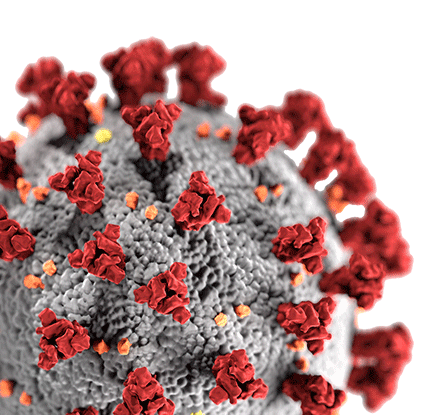To get Americans to embrace the COVID-19 vaccine, scientists will need to be the messengers.
Editor’s Note (06/11/2020): This article includes findings from our third wave of data collection that fielded May 18 through May 20. This third wave collected another 1,000 completes using a census-balanced, national non-probability sample. The new information, shared below, examines American attitudes towards a COVID-19 vaccine and related trends. Learn more about the ICF COVID-19 Monitor Survey of U.S. Adults.
As we edge into the summer season, many families continue to be on pause, with parents and kids at home around the clock and public spaces still largely off-limits. Many leaders have expressed that a safe and effective COVID-19 vaccine may allow us to reopen the country with confidence, which is why government and public health officials are keeping a close watch on the development of potential vaccines. But how does the public feel? Will Americans line up for the vaccine as soon as it becomes available, or will they delay or resist? This article examines American attitudes about a vaccine, more than two months after the start of the pandemic.
Most Americans are not certain to get a COVID-19 immunization as soon as an FDA-approved vaccine is available.
The government and many pharmaceutical companies are racing to launch clinical trials to find a safe and effective vaccine, while also planning for how they will ramp up production facilities to generate sufficient doses in a short amount of time if a trial is successful. However, only one third of adults (34%) say they would be very likely to get the coronavirus vaccine as soon as an FDA-approved option becomes available. This may pose a significant hurdle to solving the pandemic through herd immunity.
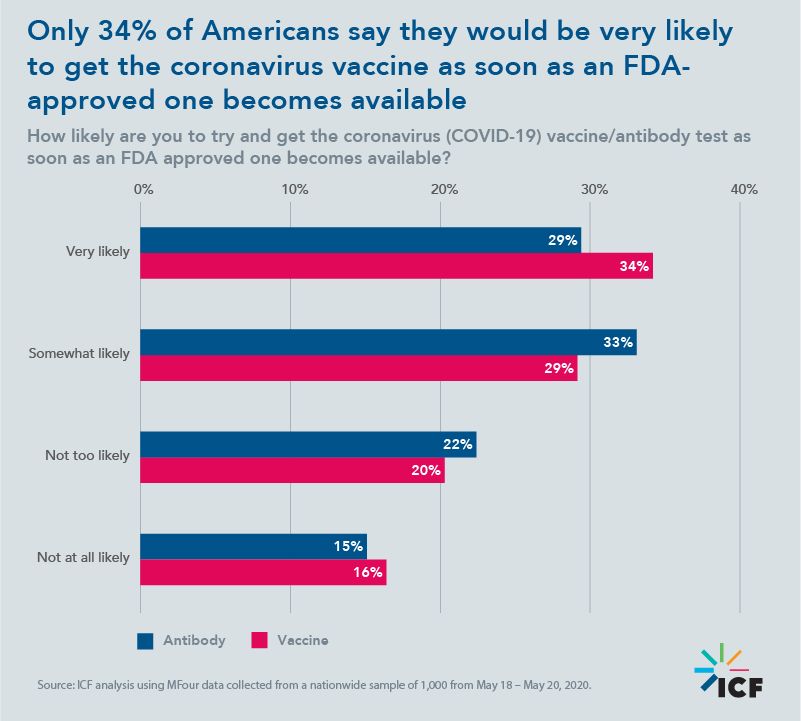
Although vaccination rates have historically differed across race/ethnicity, the differences in the likelihood of getting a COVID-19 vaccine between whites, blacks, and Hispanics are not large enough to be statistically significant. Overall, the other major demographic differences in the US population—gender, age, education, and income—may influence but not drive personal interest in getting an immunization for COVID-19 as soon as it becomes available.
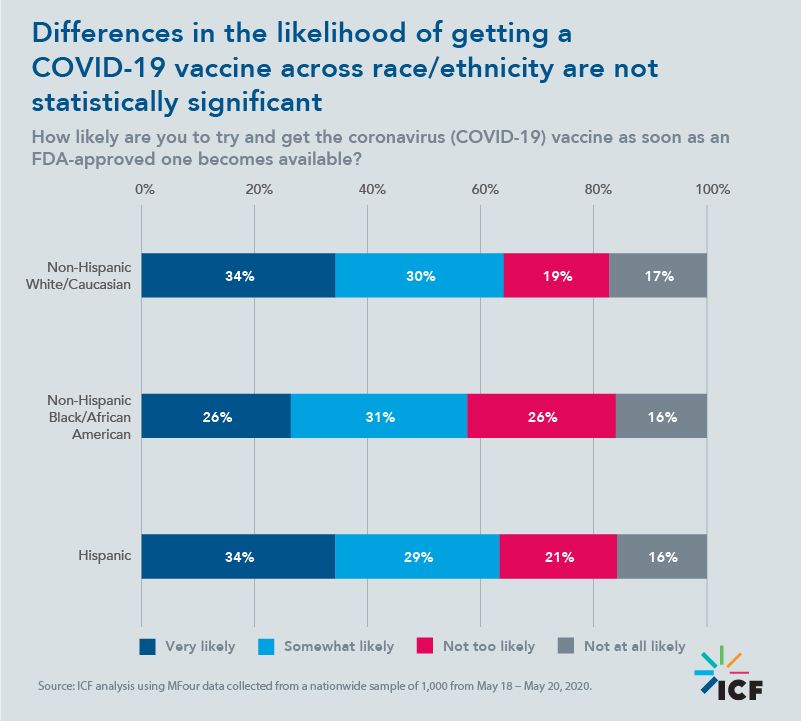
Trust in government information is also related to likelihood of getting COVID-19 immunization.
In addition to risk, trust is vital in convincing the public of the safety, effectiveness, and importance of early immunization to protect against COVID-19. The more trust Americans have in government institutions and health experts, the greater the likelihood that they will get the COVID-19 vaccine as soon as it is available.
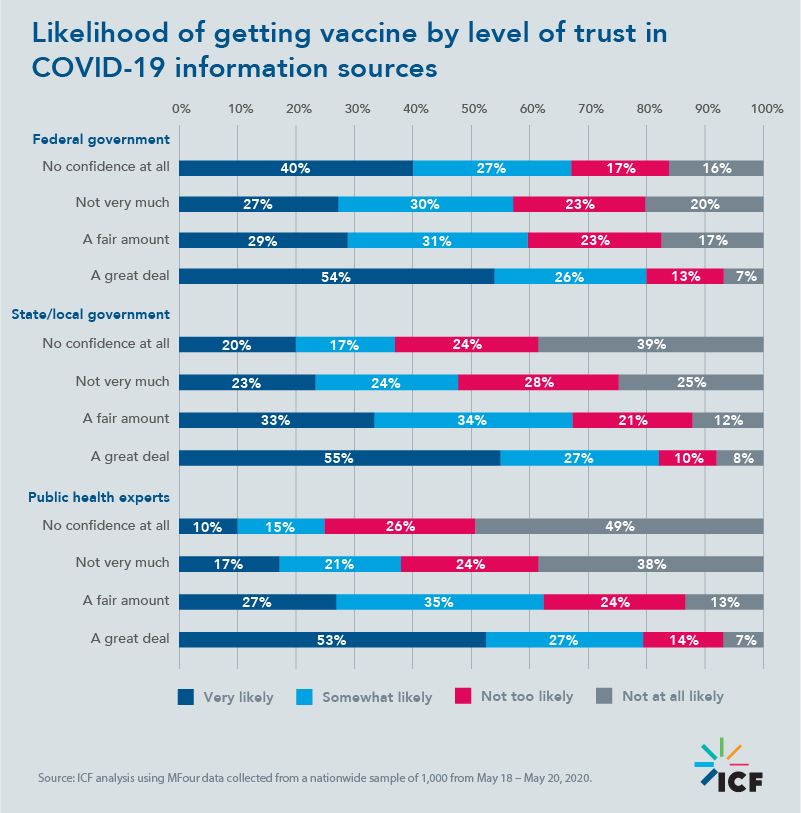
Trust in COVID-19 related information from the federal government, as well as state and local governments, has eroded across the past three months. There has also been slight decline in the trust of public health experts between April and May, although overall trust remains much higher than for federal, state, or local governments.
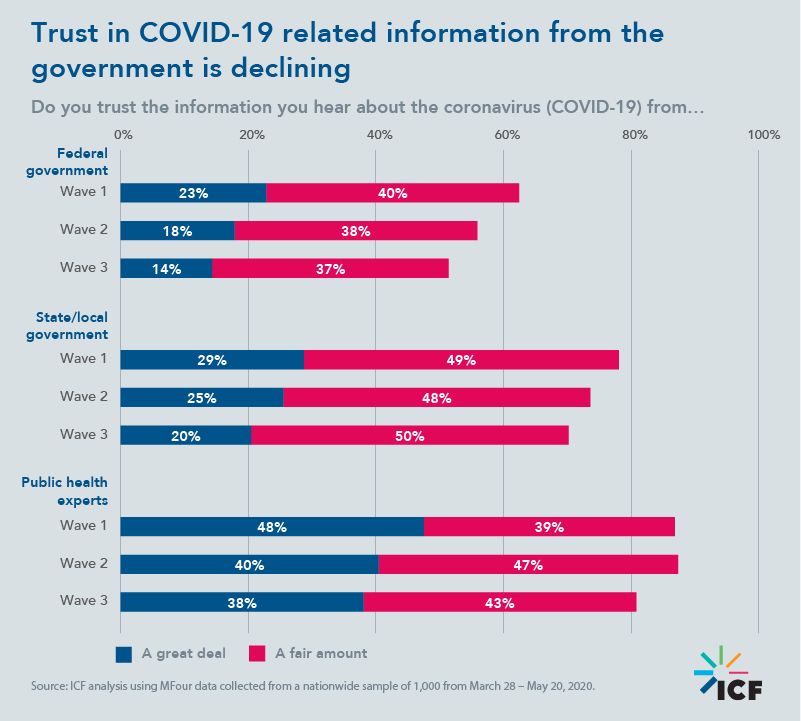
Most Americans stand behind the scientists, and those people are likely to vaccinate.
We still see a high level of public confidence in scientists. More than four out of five adults have a great deal of confidence (44%) or a fair amount of confidence (38%) in scientists to act in the best interests of the public. And confidence in scientists is directly related to likelihood of getting a coronavirus vaccine as soon as one is available.
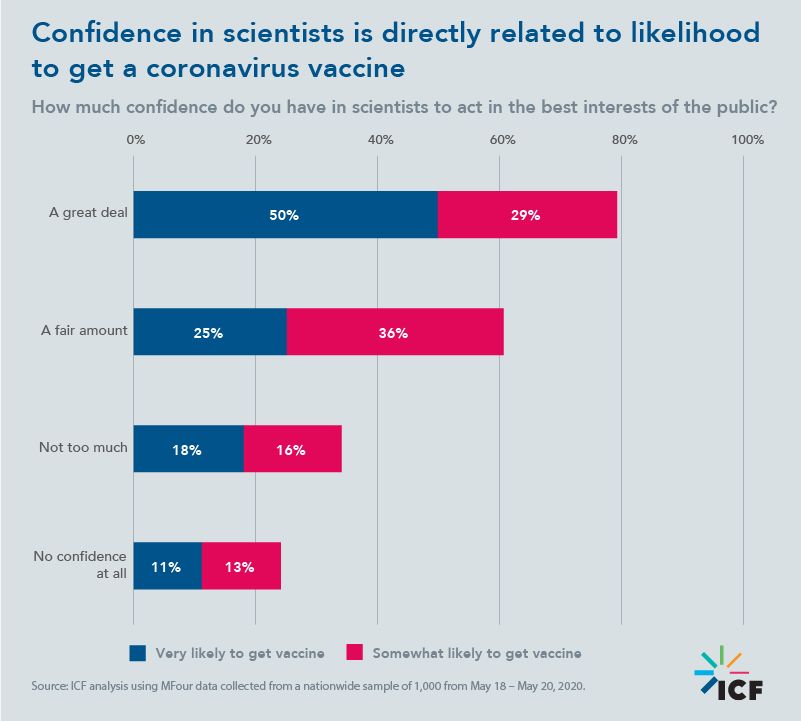
We can draw two important conclusions from the information. First, government and public health leaders may benefit from having scientists lead the communications about the vaccine with the public, as most Americans trust them to act in the public’s best interest. Second, efforts that reduce the public’s confidence and trust in scientists and public health experts to control the outbreak may, in turn, reduce the rates of COVID-19 immunization.
Watch this space
How will American sentiment change as the pandemic continues and the world focuses even more attention on potential vaccine candidates? Will Americans rally around inoculation, or will they become even more lukewarm to the idea as cases tick down and states move to reopen? We will report key findings from our data collection efforts over the coming weeks and share this information with agencies and public health officials in support of their response to COVID-19. Sign up to receive alerts as we roll out upcoming results and package our insights into reports.
